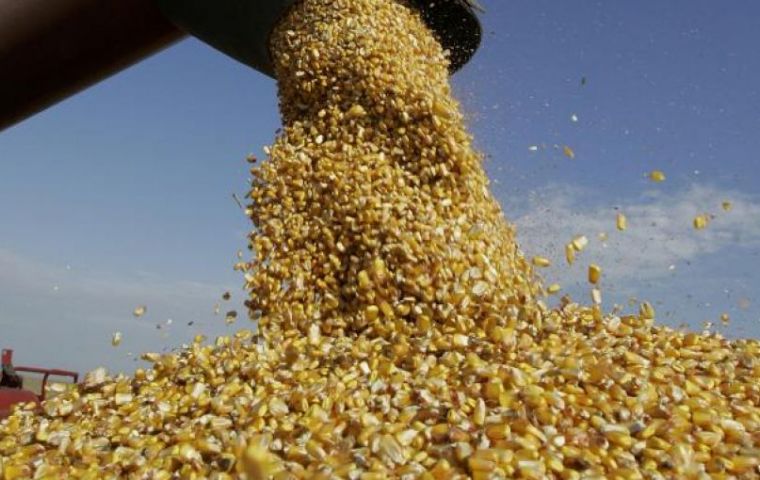MercoPress. South Atlantic News Agency
South American corn seeks to offset Ukrainian supply to Europe
 “There is no risk” of finding phytosanitary residues in Argentine corn, Planas said
“There is no risk” of finding phytosanitary residues in Argentine corn, Planas said France and Spain have requested the European Union to loosen up its requirements for the import of cereals given the current impact the war in Ukraine is having on the price of food globally, it was reported.
Spain's Ministry of Agriculture, Fisheries, and Food (MAPA) will make corn imports more flexible, with less strict limits on biotechnology and phytosanitary uses on crops, to cope with difficulties to supply cereals, it was announced.
Analysts believe the temporary measure would favor Argentina and Brazil, third and second world exporters after the United States.
Ukraine's decision to limit foreign sales of wheat, corn, and sunflower oil has led to the current situation.
On March 11, the European Commission held a meeting to consider the Spanish and French requests based on the risk analysis carried out by each member state.
”We had several conversations with the Spanish Ministry of Agriculture and the Spanish feed industry, and Spain confirmed that it is going to do it (the relaxation of rules),” the president of the Argentine Chamber of the Oil Industry and Cereal Exporters Center (CIARA-CEC) Gustavo Idígoras told Reuters.
Europe is also the main destination of Argentine biodiesel, manufactured out of soybean oil. But with grains spared for human consumption in addition to the fear of shortages after both Ukraine and Russia withdrew from the global market, has caused international prices to soar to record highs for wheat and to 15-year highs for corn.
Spain's Agriculture Minister Luis Planas has told the EU “there is no risk” of finding phytosanitary residues in Argentine corn. “We have stock available but we need in the next 60 days to activate purchases in third countries,” Planas told a parliamentary committee, according to Reuters.
Based on the information provided by the Spanish Association of Foreign Trade of Cereals and Similar Products (AECEC) and, after carrying out the corresponding risk analysis about 10 phytosanitary products, the European Union concluded that 6 of them do not present any problem in light of current legislation.
Argentina produced 53 million tons of corn last year, of which some 40 million tons were exported. But due to the drought in the first part of the current season, projections for 2022 are around 40 million tons. However, better prices would yield better results in terms of revenues.
(Source: TN)




Top Comments
Disclaimer & comment rulesCommenting for this story is now closed.
If you have a Facebook account, become a fan and comment on our Facebook Page!